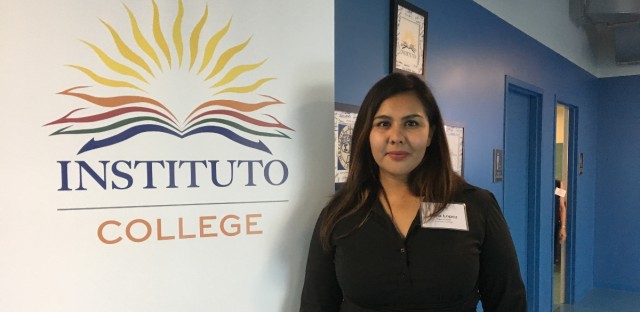
Share On Social!
Latinos are making big educational strides. But they still face a lot of hurdles in graduating high school, getting into college, and earning a degree.
A Chicago program came up with a unique way to help.
Instituto del Progresso Latino started Instituto College, a private two-year college in Chicago that will prepare Latino students with limited English and no high school diploma for middle-income positions, Inside Higher Ed reports.
Instituto College aims to give hope to Latino immigrants.
In August 2018, the college will welcome its first class of pilot nursing students. They will bridge with an already existing program, “Careers in Salud,” which provides certified nursing assistant or registered nurse education.
How Did Instituto College Come About?
A new bill in Illinois offers an amendment to a law allowing undocumented immigrants the change to obtain licensure regardless of citizenship.
Instituto del Progresso CEO and President Karina Ayala-Bermejo and her predecessor, Juan Salgado, brainstormed the idea for the college.
They got a $500,000 grant from JP Morgan. The money will pay faculty salaries and tuition for the first class of students. The Illinois Board of Higher Education already gave their blessing to offer degrees.
The program hopes to advance and train students in five additional subject areas.
They will identify hurdles faced by Latino students, such as financial aid, language barriers, and more.
“We understand that some students may be wary of applying for Pell Grants or may not be eligible,” Ayala-Bermejo told Inside Higher Ed. “To meet those students’ needs, Instituto will seek funds or scholarships that would give undocumented students the financial support they need to enroll.”
They are seeking accreditation, too.
What Can You Do?
You can support programs like Instituto College
Fortunately, there are many programs happening across the country.
Excelencia in Education, a group the promotes Latinos in higher education, even runs a database on programs that are working for Latino student success.
Read more on what colleges can do to help Latinos succeed and continue to make strides in education!
By The Numbers
142
Percent
Expected rise in Latino cancer cases in coming years



